Baby Formula – Types and Tips to Choose Best Baby Formula
Breastfeeding might be the best food for the baby, but not all babies are satisfied with it. At times, the mother might not lactate enough, or breastfeeding at all times may not be viable. The baby formula comes to the rescue in such situations since it quite appropriately provides the baby with the necessary nutrients. But is every formula the right one for your child? Looking for the healthiest baby formula might provide you with more questions than answers. It is necessary to understand the various aspects associated with it first.
In this article, we’ll help you learn the different types of newborn formula and provide tips to help you choose the good formula for infants. Keep reading to find the best formula that suits your baby’s needs!
What Is Baby Formula?
Baby or infant formula is a specially designed milk substitute that provides essential nutrients for infants who are not breastfed or need supplementation. It is made to closely mimic the nutritional composition of breast milk, offering proteins, carbohydrates, fats, vitamins, and minerals necessary for a baby’s growth and development (1).
Different Forms of Baby Formula
Some of the different kinds of formula that are suggested for babies are (2) (3).
1. Ready-to-Use Formula
Open the lid and give it to your child. These are the only two steps needed for this formula. Most of the times, such formulas are used in hospitals where a newborn child needs to be fed quickly. On a general basis, if you’re travelling around with your baby, such formula avoids usage of any outside water and, therefore, stays the safest option to give your child.
These formulas are extremely expensive. And since they are ready to eat, the containers are larger in size to keep the formula protected. If you open the lid, the formula needs to be consumed within 48 hours or thrown away. Its darker colour can cause it to form stains on clothes if it drops.
2. Liquid Concentrate Formula
It is expensive compared to the powdered formula but the cost to convenience is pretty good. All it takes to prepare the formula is to mix equal amounts of formula and water. This helps in reducing the measuring time and can assist in preparing the formula quickly. The container comes in smaller compared to the ready-to-use one, too.
3. Powdered Formula
This is the one that maximum parents opt for, especially when the formula has to be fed to the baby on a regular basis. It is convenient to carry around, easy on the pocket, lasts for as long as a month even after the container is opened, but a little tricky when it comes to preparing the right amount.
Powdered formulas require measuring out the powder in the right amounts and mixing it with water, adhering strictly to the instructions on the box. This can quickly get taxing, especially when waking up in the middle of the night to prepare it.
Various Types of Formula Milk for Babies
Here some of the types of formula milk that you can consider for your baby (3) (4) (5) (6).
1. Formula Based on Cow’s Milk
Most of the formula that is available in the market make use of cow’s milk as their primary constituent. This is due to the nutritional balance that cow’s milk offers the child. The proportions of fats, carbohydrates and proteins are in the perfect quantity and are altered to further be easy to digest by the baby’s stomach.
2. Formula that Has Been Completely or Partially Hydrolysed
Certain companies prefer to create formulas that are hydrolysed. What it means is that the protein molecules are broken down into smaller portions, or even right down to minuscule versions of them, in partial and fully hydrolysed formulas respectively. This allows the baby’s body to digest and absorb proteins without much difficulty. Such a formula is mostly recommended for premature babies since their digestive system is yet to mature, or if a baby seems to have an allergy towards a specific protein in the milk.
3. Formula that Is Based on Soy
You might be well aware of the presence of soy milk in the market, which is used by certain people as an alternative to regular milk. Baby formulas are available on the same lines as well, that make use of the protein present in plants, as a replacement for the proteins obtained from cow’s milk. Using such formulas is mostly a personal choice. However, doctors might recommend using them in certain cases.
A baby might develop a gastrointestinal infection that causes a lactose intolerance to set in temporarily. A soy-milk can help provide the necessary nutrition in this case. At times, a baby might suffer from an allergy to the protein present in cow’s milk. This is termed as IgE or immunoglobulin E allergy. It could also be triggered with soy milk, too, so do not give it to your child unless the doctor gives a go ahead.
Some rare cases of galactosemia, where a body fails to break down milk sugar, or extremely severe lactose intolerance called as congenital lactase deficiency, might deem it necessary to use soy milk.
4. Formula that Is Free of Lactose
If lactose intolerance is the reason your baby cannot have the formula, there is an option for you. Since the intolerance is due to the inability of digesting the milk sugar, these lactose-free formulas replace the inherent sugar with a different one, preferably corn syrup. This can then be given to your child without any issues.
5. Formula that Is Specifically Made for Premature Babies
Compared to full-term babies, any child that is born quite early to the due date or does not have the right weight at birth, have quite different demands of nutrition for their bodies. There are specific formulas in the market that focus primarily on calories and proteins, which are delivered quickly to the baby via a fat termed as MCT or medium-chain triglycerides. Choosing the right type depends on the current weight of the child.
6. Formula That Functions as a Fortifier
Your baby might not need formula milk if he’s breastfeeding, but he might need some additional nutrition for better development. These breastmilk fortifiers are meant for special cases, where the baby may not get enough nutrition from the mother. By mixing these with stored breast milk, or given separately after a feeding, it can help your baby develop at the right pace.
7. Formula Focused on Metabolism
In certain rare cases, the baby might be suffering from a disease that requires additional support to perform the metabolic activities of the body via appropriate nutrition. Your doctor might recommend using such metabolic formula that is developed primarily for such scenarios.
8. Formula Made Organically
There isn’t much difference between the traditional formula and organic formula, save for the fact that the latter makes use of organic milk instead of regular cow milk. Many believe organic milk to have its own health benefits, although it hasn’t been conclusively proven. It can be opted for if you’re ready to pay the higher price for it.
9. Formula Meant for a Specific Condition
These formulas are costlier than the usual ones and have a slight difference in the nutritional structure. Some might be aimed towards helping the baby with digestion problems or so, by tweaking the composition. Such formula is rarely required and is not generally recommended by doctors, too. Most babies adapt to their own bodies within 6 months or so.
Important Components of Formula
The baby formula ingredients are all based on a similar structure with a few additional constituents present to boost up the nutritive value present in them (7) (8).
- Cow’s milk forms the basic ingredient, which is replaced with lactose-free alternatives or soy-milk in specific formulas. Organic milk is also used in formula meant for vegan families.
- Certain formulas are fortified with DHA/ARA which are artificially prepared versions of the fats present in the mother’s milk. There are controversies surrounding the usage of synthetic fatty acids since there is no conclusive proof of them working as per the natural ones.
- Iron fortification is usually present in most formulas and is an absolute necessity. Do not opt for a formula that is not iron-fortified unless specifically advised by your doctor.
- There are some formulas in the market that come with added probiotics. These help the healthy bacteria in the baby’s gut to thrive and protect the body. Babies suffering from diarrhoea or on a course of antibiotics can benefit quite well from such formula unless they are already being breastfed.
- Whey and Casein Ratio varies across different formulas to aid digestion. Formulas with a higher whey content are easier for babies to digest, resembling the protein composition of breast milk.
- Lutein is sometimes added to formula as it plays a crucial role in supporting eye health and cognitive development, similar to the benefits found in breast milk.
- Nucleotides are present in certain formulas to help boost the immune system. These are naturally occurring in breast milk and contribute to cell growth and overall development.
How to Choose a Baby Formula?
Before choosing the right formula for your baby, you can consider the following things.
1. Let Your Baby Be Born
When deciding how to buy baby formula, don’t stock up on it before your baby is born. Use formula samples to check for compatibility and allergies, and then purchase the one that seems the right fit for your child.
2. Purchase from Large Superstores
Any store franchises that have large branches across the country, usually have formulas that are stocked fresh and have discounts on them for mass purchases. This allows you to buy the necessary quantity at an affordable price.
3. Check for Saving Plans
Certain formula brands or supermarkets might have special-baby membership offers. These allow you to get formulas for a reduced price or get coupons on purchasing a specific quantity.
4. A Powdered Formula Should Be Your Primary Choice
For regular consumption and feeding, opt for powder formulas. These are cheap and convenient to use and store. You can keep liquid formulas or ready-to-use in small amounts of purchasing them if you’re travelling or so.
5. The Larger It Is, The Better It Is
Formula companies tend to price larger formula boxes and cans at a lower cost to quantity, as compared to the smaller ones. For regular usage, purchase larger quantities at a cheaper cost.
6. Choosing a Specific Store Brand Is Not a Bad Choice
All baby formulas have to strictly adhere to the norms put forward by the administrative policies. Though the time of formula structure might be different, all formulas have the requisite nutrition that ought to be present. So, you can choose a store-based brand that is comparatively cheaper than other brands.
7. Checking Expiry Date Is a Must
Formulas tend to start losing their nutritive value, and even their safe to consume properties, as they cross their use-by dates. Note the dates especially when purchasing large quantities of formula.
8. Stick to a Brand
Once you know a brand that works for your child, try to not change that since the other brand might not be compatible.
9. Save Cash Coupons to Use with Special Discounts
Strategise effectively by keeping an eye out for clearance sales on major stores. Use cash coupons that are provided by brands to combine with these discounts to purchase formula at a way cheaper cost.
10. Follow The Trinity of Choice when Purchasing
Check if the formula is available close to you, is compatible with your baby, and is affordable for you. The best formula is the one that satisfies them all.
Generic Brand v/s Brand Name
When it comes to baby formula comparison between well-established brands and generic local brands, don’t play with your child’s life. Opt for brands that are well-known so that you are assured your child is getting the best that he can get.
When to Consult a Doctor?
It is always best to consult a doctor before choosing or switching your baby’s formula, especially if your baby shows signs of intolerance or allergic reactions. Here are some situations where medical advice is necessary:
- Frequent vomiting or diarrhoea
- Severe gas or colic
- Skin rashes or eczema
- Poor weight gain
- Blood in stool
- Breathing difficulties
FAQs
1. Can I make formula at home?
It is strongly recommended to not do so since homemade baby formula may not always have the right nutrition and can even cause complications in some cases (9).
2. Is it right to add cereal or milk to my baby’s formula?
The baby formula contains all the nutrition your child needs. Do not add any other elements, since some could react with the formula causing your baby harm.
3. What if I am still not definite which formula is right for my baby?
Let your doctor know the different options of formula that work for your baby. He will help you out in choosing the one that seems the best fit.
The healthy development of a child is dependent on many factors. Getting the right nutrition still stays the highest priority in that regard. Complementing breastfeeding with the recommended newborn formula brings the right balance of nutritive value for your child and helps him grow well.
References/Resources:
1. National Library of Medicine – Infant Formula: Evaluating the Safety of New Ingredients
2. American Academy of Pediatrics – Forms of Baby Formula: Powder, Concentrate & Ready-to-Feed
3. U.S. Food and Drug Administration – Infant Formula
4. American Academy of Pediatrics – Choosing a Baby Formula
6. Nemours KidsHealth – Formula Feeding FAQs: Getting Started
8. National Library of Medicine – Comparing Infant Formulas with Human Milk
9. American Academy of Pediatrics – Is Homemade Baby Formula Safe?
Also Read:
Soy Formula for Babies
Vegan Formula for Babies
When do Babies Stop Drinking Formula
Was This Article Helpful?
Parenting is a huge responsibility, for you as a caregiver, but also for us as a parenting content platform. We understand that and take our responsibility of creating credible content seriously. FirstCry Parenting articles are written and published only after extensive research using factually sound references to deliver quality content that is accurate, validated by experts, and completely reliable. To understand how we go about creating content that is credible, read our editorial policy here.





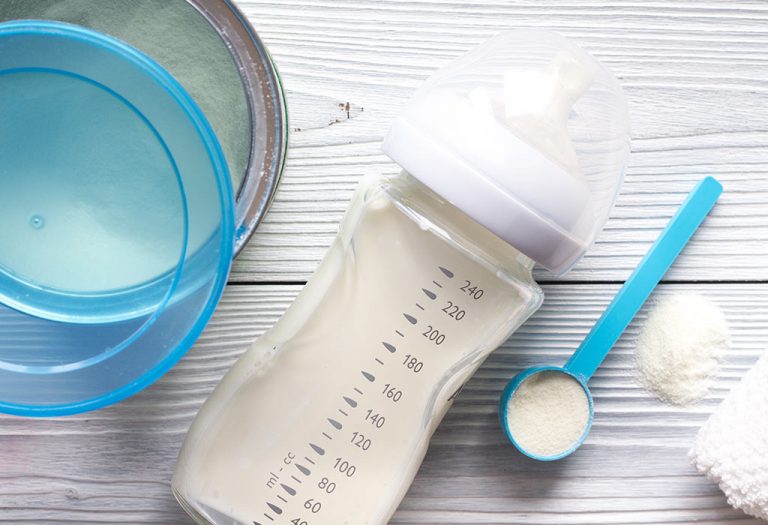

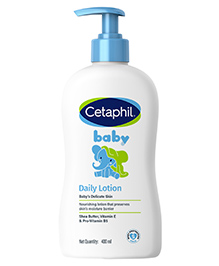
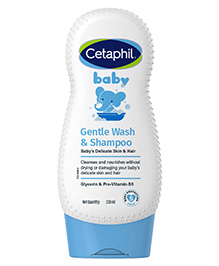
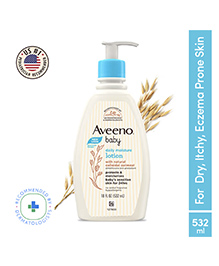
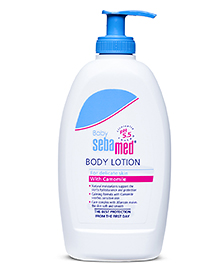
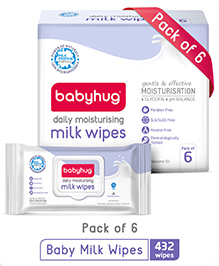
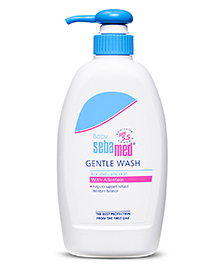
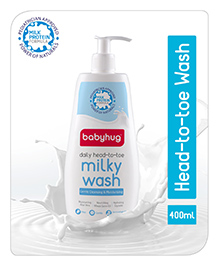



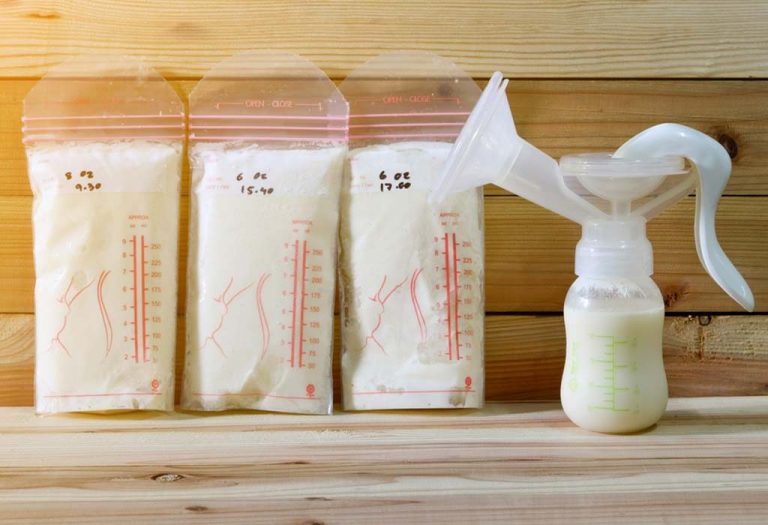

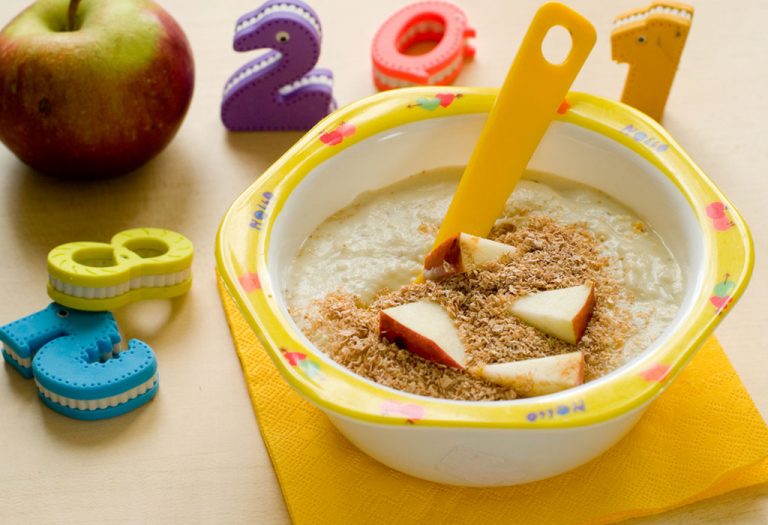

.svg)


















